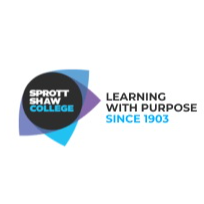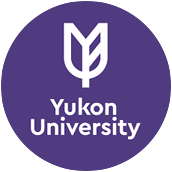• Study in Canada
Pros & Cons of Studying in Canada
35320 Reads
3 min Read
- Canada's rise as a favored destination for higher education abroad has attracted students from around the globe.
- Prospective students wanting to pursue higher education in Canada should carefully weigh the potential advantages and disadvantages before applying for a university degree.
- The blog highlights benefits such as quality education, diverse culture, and post-graduation work opportunities, as well as challenges such as high cost of living and extreme weather conditions.
Canada is one of the largest multicultural countries popular for its beautiful landscapes, open spaces, mountains, and lakes. An advanced healthcare system, flexible government laws, and the chance to settle permanently in the country make it one of the most lucrative options among international students. Every year, many students from various parts of the world migrate to Canada because of its world-class education system, top-ranked universities, and ample job opportunities. In the case of India, more than 34 % of Canada’s international students belong to India!
Let’s discuss the pros and cons of studying in Canada in detail.
Pros of Studying in Canada
High-Quality Education
Diverse & Inclusive Society
Affordable Education
Employment Opportunities
Research Opportunities
Post-Graduation Work Opportunities
Quality of Life
Scholarship Opportunities
| Canadian government-funded scholarships | These are provided to students in the form of awards to encourage students to opt for study here. |
| Non-government scholarships | Awarded by various trusts and communities to students who choose to pursue specific courses. |
| Institutional scholarships | These are awarded by individual colleges or universities to students who choose to study with them. |
Cons of Studying in Canada
Challenges in Adapting to the Climate
Culture Shock & Language Barrier
Many international students experience culture shock upon arriving in Canada, characterized by feelings of disorientation and frustration as they adjust to new social norms and communication styles. This adjustment phase can impact their academic and social life, making it challenging to feel at home. Language barriers further complicate this transition, especially for those who are not fluent in English or French, affecting their ability to communicate effectively and integrate into the community.Healthcare
Work-Life Balance
Expensive lifestyle
| Expenses | Cost (CAD) |
| Food | $300-$400 |
| Travel | $80-$110 |
| Entertainment | $150 |
| Accommodation (shared) | $400-$800 |
| Health Insurance | $70-$80 |
| Utilities (electricity, cooling, heating, water, garbage) | $160-$180 |
Exams Required to Study in Canada
| IELTS | The International English Language Testing System (IELTS) is a popular English proficiency test that is accepted by most Canadian universities and colleges. The test assesses a candidate’s language skills based on their accuracy in reading, writing, listening, and speaking in English. The estimated fee for the IELTS exam in India is INR 17,000. |
| PTE | Pearson Test for English (PTE) is another alternative to the IELTS exam, gaining popularity among many academic institutes in Canada. Conducted online, the PTE results and scores are declared much earlier compared to other tests, making it suitable for candidates wishing to apply early. The estimated cost of PTE Academic in India is INR 17,000. |
| TOEFL | Conducted by ETS, the Test of English as a Foreign Language is also an English proficiency test conducted in different forms. Test takers looking for a shorter version can choose the TOEFL Essential Test, whereas candidates looking for a safer medium can select the TOEFL at Home version. The TOEFL exam fee in India is approximately INR 16,900. |
Study Visa Requirements for Canada
| Valid Passport | According to the Canadian High Commission, students should check the validity of their passports and make sure they cover their intended stay in Canada. |
| Proof of Funds | When applying for a study permit, students are required to prove that they have enough funds to pay the tuition fee and cover their living expenses in Canada. |
| Immigration Medical Examination (IME) | Every international student must undergo a mandatory IME conducted by a doctor. |
| English Language Proficiency Exam Score | Proof of English proficiency is another prerequisite to apply for study in Canada. |
| Statement of Purpose | Students applying for a Canadian study permit are required to submit a letter explaining their selection of the country as a study destination. |
Conclusion
Canada is home to infinite possibilities for international students. It gives students a chance to shape their lives how they want, achieve career goals, and learn to become self-dependent. The disadvantages of living in Canada feel shallow before the unparalleled career benefits that it promises.
Get in-depth knowledge about the pros and cons of studying in Canada, the courses and universities to study, scholarship options, and all the related aspects from expert counselors. Visit the nearest study abroad consultants - Canam today or book an online slot from the comfort of your home.
FAQ
Canada offers high-quality education with globally recognized degrees, a multicultural environment, and opportunities for post-graduation work permits.
Canada's education system is renowned for its academic excellence, research opportunities, and state-of-the-art facilities, often ranking high on global education indices.
Visa requirements typically include proof of acceptance by a Canadian institution, financial stability, and sometimes a medical exam or police clearance, varying based on the student's home country.
Tuition fees in Canada are generally more affordable compared to other top study destinations like the US and UK, with additional scholarships and funding opportunities available.
International students in Canada have access to post-graduation work permits, allowing them to gain valuable work experience in their field of study for up to three years.
Get great articles direct to your inbox
The latest news, articles, and resources, sent straight to your inbox every month.
Popular Universities to Study Abroad
World class education waiting for you.

St. Clair College - Centre For the Arts Campus
Ontario, Canada • 4 Programmes
Tuition Fee : CAD 0-0 / year

Sprott Shaw College - International Office
British Columbia, Canada • 19 Programmes
Tuition Fee : CAD 10000-38000 / year



Fanshawe College - St. Thomas-Elgin (Regional Campus)
Ontario, Canada • 9 Programmes
Tuition Fee : CAD 14500-30000 / year

Yukon University - Whitehorse Campus
Yukon Territory, Canada • 21 Programmes
Tuition Fee : CAD 12000-19500 / year
.webp)
The American Musical and Dramatic Academy - Los Angeles Campus
California, USA • 17 Programmes
Tuition Fee : USD 46000-47000 / year

Popular English Language Proficiency Exams
Blogs and Articles
Curated content to keep you updated on the latest education trends, news and more.
Updated on • Jul 17,2025 05:33 PM IST • USA
PTE Accepted Universities in Australia
Updated on • Jul 17,2025 05:09 PM IST • PTE
Part-Time Jobs for International Students in Australia
Updated on • Jul 17,2025 03:44 PM IST • Australia
Updated on • Jul 12,2025 04:02 PM IST • USA
Updated on • Jul 11,2025 11:32 AM IST • Education
CPT vs OPT: Meaning, Difference, and How to Apply
Updated on • Jul 11,2025 10:40 AM IST • USA
Masters in Computer Science in UK: Top Colleges, Eligibility, Scholarships
Updated on • Jul 10,2025 11:29 AM IST • study in the UK
Highest Paying Jobs in the World
Updated on • Jul 08,2025 01:40 PM IST • Study Abroad
MBA in Australia for Indian Students: Best Universities, Requirements, Scholarship, Courses, Jobs
Updated on • Jul 08,2025 01:35 PM IST • Australia
Canada vs Australia: Which Country is Better for Indian Students in 2025?
Updated on • Jul 07,2025 12:46 PM IST • Education
France vs Germany: Which Is Better for International Students?
Updated on • Jun 30,2025 05:15 PM IST • Education
Top 10 Agricultural Universities in USA
Updated on • Jun 27,2025 05:25 PM IST • USA
Most In-Demand Future Careers in 2025
Updated on • Jun 26,2025 04:41 PM IST • Education
How Much Do Nurses Make in the U.S.?
Updated on • Jun 23,2025 03:59 PM IST • USA
Updated on • Jun 21,2025 02:00 PM IST • USA
MBA in UK: Universities, Eligibility, Types, and Career Opportunities
Updated on • Jun 19,2025 04:09 PM IST • UK • study in the UK
Scholarships in France for Indian Students
Updated on • May 29,2025 05:22 PM IST • France
Intakes in Dubai for Indian Students
Updated on • May 27,2025 03:34 PM IST • Study in Dubai
France Student Visa 2025 – Requirements, Fees, Checklist & Application Process
Updated on • May 23,2025 03:36 PM IST • France
MBA in France for Indian Students in 2025
Updated on • May 22,2025 05:35 PM IST • France
Related Blogs and Articles
A little effort to provide an authentic and reliable content for keen readers!!
Updated on • 22-05-2025 • Study in Canada
Job Opportunities in Canada for Indians: Salaries, Best Job Sites & More
Updated on • 20-05-2025 • Study in Canada
Updated on • 24-01-2025 • Study in Canada
Canada Student Visa Interview Questions
Updated on • 23-01-2025 • Study in Canada
Updated on • 15-01-2025 • Study in Canada
September/Fall Intake Canada 2025: Timeline, Universities & Admission Requirements
Updated on • 03-01-2025 • Study in Canada
Updated on • 02-01-2025 • Study in Canada
Life in Canada as an Indian Student
Updated on • 26-12-2024 • Study in Canada
Timeline for Winter (January) Intake in Canada 2025
Updated on • 21-12-2024 • Study in Canada
Updated on • 05-12-2024 • Study in Canada
Best Cities to Study in Canada
Updated on • 21-11-2024 • Study in Canada
Bachelor of Architecture in Canada
Updated on • 13-11-2024 • Study in Canada
Canada Study Visa - Fee, Requirements, How to Apply & More
Updated on • 05-10-2024 • Study in Canada
Study intakes in Canada - Fall, Winter & Summer
Updated on • 03-10-2024 • Study in Canada
Letter of Recommendation (LOR) for Canada: University Requirements, Sample and Writing Tips
Updated on • 26-09-2024 • Study in Canada
New Rules & Regulations in Canada for International Students
Updated on • 31-08-2024 • Study in Canada
Public Transportation in Canada for International students
Updated on • 29-08-2024 • Study in Canada
Healthcare in Canada for international students
Updated on • 27-08-2024 • Study in Canada
Courses in Canada for International Students
Updated on • 10-08-2024 • Study in Canada
Top PG diploma Colleges in Canada - Courses, Eligibility & More
Updated on • 06-08-2024 • Study in Canada












